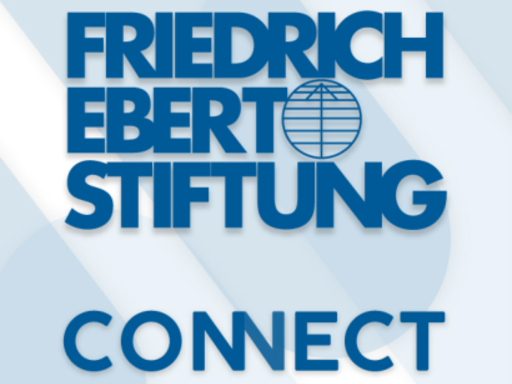Fundamental rights and Digitalisation: A social promise in FLUX
Photo:iStock.com / LagartoFilm
About half of the world’s population is now online, on platforms like Facebook, Messenger services, chat apps or e-mail. There may still be much room for advancement on the Internet, but one thing is already clear: We live part of our lives there, and move through it in a normative order of complex rules at the global, regional, and national levels. These rules range from informal norms like voluntary commitments, netiquette, and general terms of service from service providers, all the way to classic (basic) laws.
Do we need an update to the basic normative order?
For some time now, there have been renewed efforts to put the normative order of the Internet on firmer footing, especially at the international level, for instance as part of the multi-stakeholder approach of the Internet Governance Forum at the UN or in the context of the Net Mundial Initiative. A statement from Net Mundial came as early as 2014 and referenced the Universal Declaration of Human Rights:
“Rights that people have offline must also be protected online, in accordance with international human rights legal obligations, including the International Covenants on Civil and Political Rights and Economic, Social and Cultural Rights, and the Convention on the Rights of Persons with Disabilities.”
In late 2015, initiated by Martin Schulz and Heiko Maas, prominent voices in Germany called for a stronger formal codification of digital fundamental rights and for the law to shape technology. They sought to convert the digitalisation that has been driven by neoliberalism into a democratic process centered around the question of how we want our interconnected lives online to be. Furthermore, how do we deal with the spheres of activity and the social problems that digitalisation is causing to manifest in new ways? What does privacy online mean, for example, when the public-private relationship has fundamentally changed?
The initiative by Martin Schulz and Heiko Maas resulted in a beta version of a Charter of the Digital Fundamental Rights of the European Union in 2016. So far, the charter and the way it has been created have been the subject of heavy recent discussion and criticism in Germany. The draft charter covers various topics, for instance the right to equal participation in the digital sphere, the right to data protection and privacy, and “the right not to be the subject of computerised decisions which have significant consequences for their lives”. This small excerpt from the total of 23 articles altogether shows that two different levels are being served here. On the one hand, some articles of the charter spell out human rights, for example the right to liberty. On the other hand, other articles of the charter address questions of artificial intelligence or the algorithmisation of decisions that arise as a result from the field of application itself and are less of a representation of fundamental rights in the actual sense. The central issue thanks to the charter, however, one that has caused a creeping debate that was long overdue in Germany, is whether we need our own digital fundamental rights. Or, what is really warranted is more consistent enforcement of existing fundamental rights?
One thing is clear, the further development of an Internet-sensitive application of fundamental rights and the creation of a common understanding of the digital dimension of fundamental rights is more than justified. We cannot leave it up to users to demand their fundamental rights and encode them into the Internet. In the words of Julia Pohle, a laissez-faire attitude could foster a two-class society of users: A digitalised society split down the middle into users who can, and users who cannot.
Matthias C. Kettemann sees one of the most urgent problems in the protection of fundamental rights in a similar way, “in the drifting apart of the state’s factual possibilities for protection and the protection that individuals expect” (translated from the German-language article, p. 84). This problem is magnified even further because many users’ data is often located outside the reach of any one state. In his expert evaluation for Friedrich-Ebert-Stiftung, Kettemann concludes of international law that it would be expedient “to apply existing law in an Internet-sensitive way and to observe and provide critical supervision of the slow process of crystallising new norms of customary law” (translated from the German-language article, p. 86).
Fundamental rights are a social promise, which is why we need more public debate
As Hannah Arendt tells us, mutual promises are a signpost for unknown and untrodden territory; they express that people will also commit themselves to circumstances they have yet to be able to assess. A joint reflection on the translation of fundamental rights into the digital world implies that we maintain the vibrancy of our social consensus—how we wish to live with one another—and renew the binding force of our common promise. In this respect, debates on digital fundamental rights are good for democracy and at the same time raise the question of how debate can emerge from the public intellectual level even stronger.
We need more public debate if we are entitled to claim that fundamental rights are a promise of digitalised society to itself
With the basic idea of strategic litigation through constitutional cases, the Gesellschaft für Freiheitsrechte e.V. (Society for Civil Rights, GFF) has made itself publicly known in order to pursue cases dealing with fundamental rights and human rights in Karlsruhe, the highest court in Germany. Constanze Kurz, honorary spokeswoman for the Chaos Computer Club, has furthermore called for a debate in the German Parliament, which is even more involved in the digital dimension of fundamental rights. She did so at the Friedrich-Ebert-Stiftung event, “Netzansichten” (Internet opinions), at the re: publica conference in Berlin on Internet and society. Indeed, we need more public debate if we are entitled to claim that fundamental rights are a promise of digitalised society to itself. The voices of our fellow citizens and of civil society must become even louder. ###
Dr. Johanna Niesyto heads the FES Media Policy unit at the FES Political Academy. She volunteers for Wikimedia Germany, where she has served as a member of the board since the end of 2016.
About FES Connect
Connecting people, in the spirit of social democracy, we source and share content in English from the German and international network of the Friedrich-Ebert-Stiftung.








